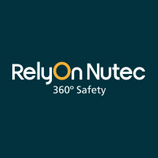- Email: marketing@survival-systems.com
- Phone: +62217801388
- About Us
-
Courses
- ALL Courses
-
Topic
- E-Learning
-
Technical Training
- Essentials of Drilling Technology & Equipment
- Essentials of Plug & Abandonment
- High Pressure, High Temperature Drilling Operations
- IADC WellSharp Driller Level Well Control
- Introduction to Drilling
- IWCF Level 2 (Introductory) Well Intervention Pressure Control
- IWCF Level 2 Drilling Well Control
- IWCF Level 3 Drilling Well Control
- IWCF Level 3 Well Intervention Pressure Control
- IWCF Level 4 Well Intervention Pressure Control
- IWCF Level 4 Drilling Well Control
- Stuck Pipe Prevention & Solutions
- IADC WellSharp Introductory Well Control
- IADC WellSharp Well Servicing Wireline/
- IADC WellSharp Oil and Gas Operator Representative Workover and Intervention
-
Well Control
- IADC WellSharp Introductory Well Control
- IADC WellSharp Driller Level Well Control
- IWCF Level 2 (Introductory) Well Intervention Pressure Control
- IWCF Level 2 Drilling Well Control
- IWCF Level 3 Drilling Well Control
- IWCF Level 3 Well Intervention Pressure Control
- IWCF Level 4 Drilling Well Control
- Stuck Pipe Prevention & Solutions
- Fire Fighting
- Leadership
- Community Training
- Helicopter & Helideck Operations
-
Confined Space Safety
- Confined Space Entrant / Attendant
- Confined Space Entry & Rescue
- TEEX Confined Space Safety - Entrant / Attendant
- Petugas K3 Madya Ruang Terbatas
- Petugas K3 Utama Ruang Terbatas
- Petugas K3 Penyelamat Ruang Terbatas
- Teknisi K3 Deteksi Gas
- Confined Space Entry - EL
- Confined Space Entrant / Attendant (OSHA)
- Authorized Gas Tester (OPITO)
- Gas Monitor (OPITO)
-
Workplace Fire Safety
- Workplace Fire Safety
- Floor / Fire Warden
- Basic Firefighting
- Advanced Firefighting
- OERTM
- OEHTM
- FIrefighting Level D
- Firefighting Level C
- Firefighting Level B
- Firefighting Level A
- Advanced Firefighting TEEX
- Fire Awareness
- Fire Safety Awareness (OSHA)
- Fire Protection Awareness (OSHA)
- Legionella Awareness
- Drug and Alcohol Awareness (OSHA)Personnel Transfer and Evacuation Awareness (OSHA) ">
- First Aid
- Helicopter Safety
- Safely Working at Height
-
Chemical Handling
- Offshore Emergency Response Team Member (OERTM)
- Petugas Keselamatan dan Kesehatan Kerja Kimia
- Petugas Keselamatan dan Kesehatan Kerja Kimia
- Chemical Management
- Control of Substances Hazardous to Health
- Benzene Awareness (OSHA)
- Onshore Basic Spill Responder
- Offshore Basic Spill Responder
- Naturally Occurring Radioactive Material
- Transportation of Dangerous Goods by Sea
- Transportation of Dangerous Goods by Air
- General Safety / Slips, Trips & Falls
- H2S Safety
- Lifeboat Safety
- Major Emergency Management
- Offshore Safety
- Safety at Sea
- Accreditations
- E-Learning
- Registration
- Certification
- Schedule
- Blog
- Contact Us
 Winner of the 2016 OPITO Training Provider of the Year
Winner of the 2016 OPITO Training Provider of the Year





